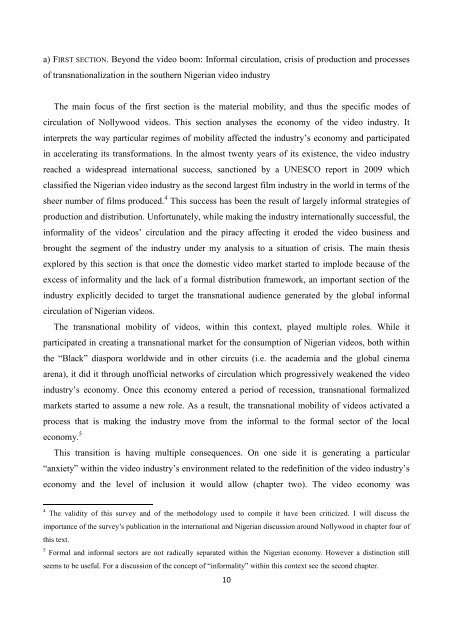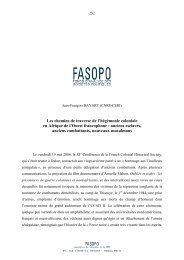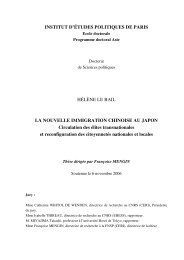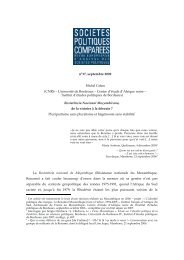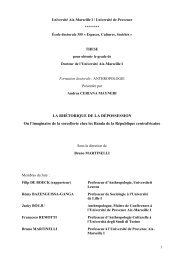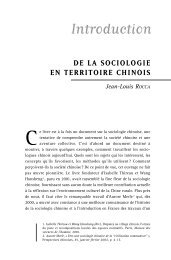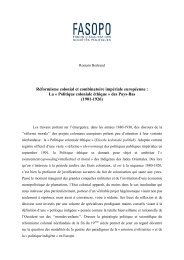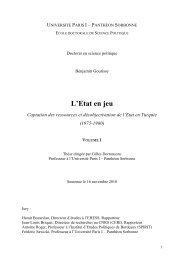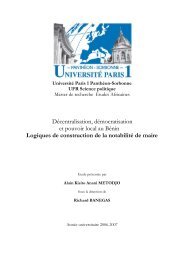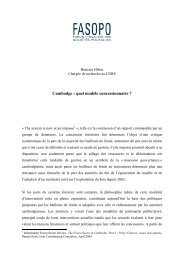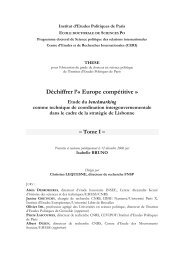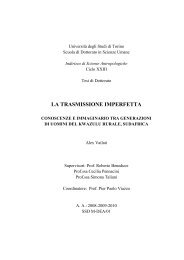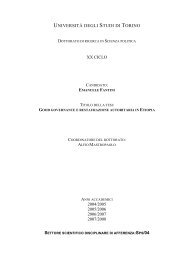Create successful ePaper yourself
Turn your PDF publications into a flip-book with our unique Google optimized e-Paper software.
a) FIRST SECTION. Beyond the video boom: Informal circulation, crisis of production and processesof transnationalization in the southern Nigerian video industryThe main focus of the first section is the material mobility, and thus the specific modes ofcirculation of Nollywood videos. This section analyses the economy of the video industry. Itinterprets the way particular regimes of mobility affected the industry’s economy and participatedin accelerating its transformations. In the almost twenty years of its existence, the video industryreached a widespread international success, sanctioned by a UNESCO report in 2009 whichclassified the Nigerian video industry as the second largest film industry in the world in terms of thesheer number of films produced. 4 This success has been the result of largely informal strategies ofproduction and distribution. Unfortunately, while making the industry internationally successful, theinformality of the videos’ circulation and the piracy affecting it eroded the video business andbrought the segment of the industry under my analysis to a situation of crisis. The main thesisexplored by this section is that once the domestic video market started to implode because of theexcess of informality and the lack of a formal distribution framework, an important section of theindustry explicitly decided to target the transnational audience generated by the global informalcirculation of Nigerian videos.The transnational mobility of videos, within this context, played multiple roles. While itparticipated in creating a transnational market for the consumption of Nigerian videos, both withinthe “Black” diaspora worldwide and in other circuits (i.e. the academia and the global cinemaarena), it did it through unofficial networks of circulation which progressively weakened the videoindustry’s economy. Once this economy entered a period of recession, transnational formalizedmarkets started to assume a new role. As a result, the transnational mobility of videos activated aprocess that is making the industry move from the informal to the formal sector of the localeconomy. 5This transition is having multiple consequences. On one side it is generating a particular“anxiety” within the video industry’s environment related to the redefinition of the video industry’seconomy and the level of inclusion it would allow (chapter two). The video economy was4 The validity of this survey and of the methodology used to compile it have been criticized. I will discuss theimportance of the survey’s publication in the international and Nigerian discussion around Nollywood in chapter four ofthis text.5 Formal and informal sectors are not radically separated within the Nigerian economy. However a distinction stillseems to be useful. For a discussion of the concept of “informality” within this context see the second chapter.10


